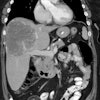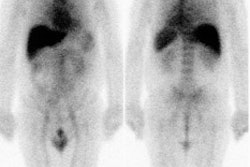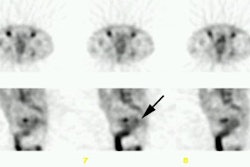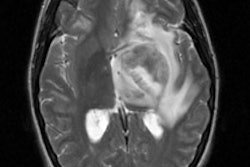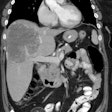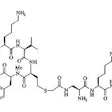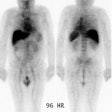Recent Results Cancer Res 2000;157:273-80
Probe-guided surgery for colorectal cancer.
Lechner P, Lind P, Snyder M, Haushofer H.
Anti-CEA-scintigraphy turned out to be very reliable in detecting primary and recurrent
colorectal cancer, its overall accuracy being more than 90%. The intraoperative
application of this technology should provide similar results when focussing at
extrahepatic tumor deposits, for example in lymph nodes, thus allowing accurate staging of
the underlying disease. To test this hypothesis we launched the following feasibility
study the results of which are compared to those reported in the recent literature. We
investigated 20 patients, six with rectum and 14 with colon cancer. 24 hours before
surgery they were intravenously given 1 ml of a fab'-fragment-antibody to CEA, labeled
with 25 mCi of 99mTc (CEA-Scan). During surgery the radioactivity in lymph glands regional
to the tumors was measured and compared to the much lower activity in healthy nodes. For
this we used a scintillation probe (C-Trak, Care Wise, Inc., Morgan Hill, CA). All lymph
nodes of interest were then excised and submitted to frozen section pathology. In 7 out of
20 cases scintimetry led to an up-staging of the disease. In addition we found metastatic
spread to lymph nodes that were basically not regional to the primary tumor
(retroperitoneum, renal hilum etc.). Scintimetry can precisely identify even very small
tumor deposits. So it leads to accurate staging while surgery is still ongoing. In a
further step the concept of sentinel node diagnosis, which is right now being clinically
evaluated, may some day be applied in colorectal surgical oncology.

